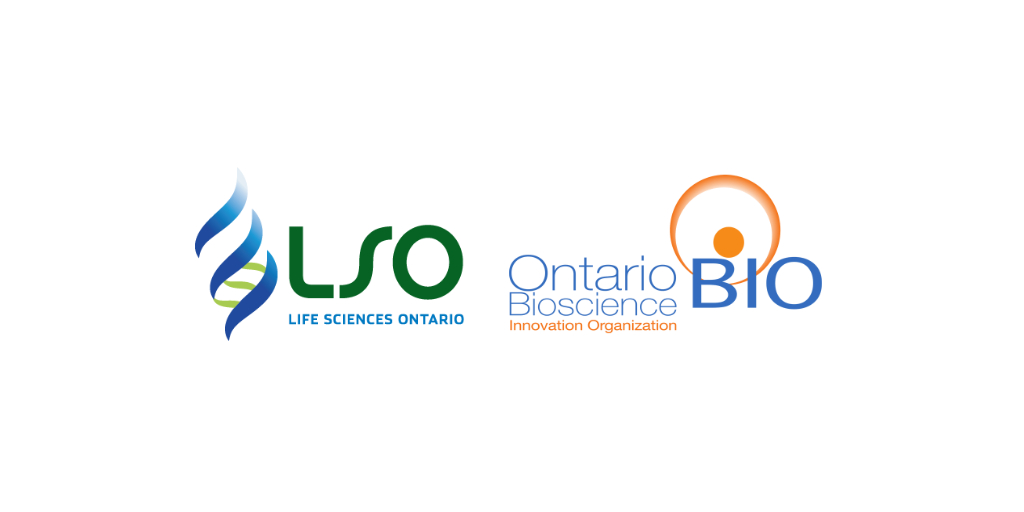TORONTO–(BUSINESS WIRE)–Today, women make up 50% of university students enrolled in STEM and health programs in Canada.1 Women identifying as visible minorities make up 44.4% of women aged 25 years or older with a post-secondary degree or higher in STEM.2 However, these numbers do not translate equally into the workforce where women are still underrepresented in Ontario’s life sciences sector. While women make up 47.5% of the overall workforce in Canada, they make up only 34% of workers in Canada’s bioeconomy.3 In executive leadership, representation of women is even lower with women making up less than 15% of board members in the life sciences and health tech fields.4 Data on specific equity-deserving groups, such as trans people or neurodiverse people, are lacking and reflects an overall lack of data on these groups in the life sciences.5 Despite these barriers, progress is being made to improve representation of women in the life sciences and gender diversity in the sector.
Women-led companies face significant barriers when it comes to accessing financing and support systems, receiving just over 2% of venture capital funding6. Organizations like Ontario Biosciences Innovation Organization (OBIO®) are delivering leadership and training initiatives to help improve women’s participation in the health and life sciences sectors. Launched in 2022, the OBIO® Women in Health Initiative (WiHI) is a program designed to increase the participation and advancement of women in the sector. The OBIO® WiHI supports women entering and advancing their careers in business development roles in the health science industry through a combination of on-the-job experiential learning and financial support. The OBIO® WiHI Seed Program is designed to support early-stage, women-led health science companies with grant funding and equity investments. Half of the participants in the OBIO® WiHI are black, indigenous, or other people of color.
To celebrate this International Women’s Day and highlight progress that is being made to improve gender inclusion in the life sciences, LSO and OBIO® are delighted to feature the following women who are leading Ontario’s life sciences sector.
Nicole DeKort – President & CEO, Medtech Canada
Can you share a pivotal moment in your career that shaped your leadership style and approach in the life sciences sector?
One of the most pivotal moments in my career that has shaped my leadership style was my divorce in 2008. I had been working in politics at the time and was commuting from Markham to downtown Toronto, working long hours and many evenings and weekends. I was now confronted with life as a single mother sharing joint custody of my kids every other week. This meant a drastic change in lifestyle for me on the weeks that I had my kids and also made me realize the importance of the time I spent with them, knowing that I would now only have them 50% of the time. I quit my 15-year career in politics and left Queen’s Park, in search of something I wasn’t sure I would be able to find. I have been very career oriented my entire adult life and wanted to find a role that fulfilled some seemingly conflicting tenants: 1) I wanted to do something that made me feel I was making a positive difference in the world, 2) I wanted a career that I would continue to have growth opportunities and one that I could still work very hard and be successful at, and 3) I wanted work life balance so that I could focus on my kids on my evenings and weekends. Medtech Canada was the perfect fit and I was very lucky to work for someone – Brian Lewis – that truly believed that you can have both work/life balance, and still be career oriented and successful during your workday. He was also passionate about the medical technology industry and how important this industry is when it comes to saving lives, and making our health care system better. This shaped my leadership style in a way where I bring the same philosophy to my team at Medtech Canada. They are an incredible group of very smart, hard working, passionate people that pour their heart and souls into their jobs and are extremely successful at what they do – and at the same time, we have implemented a number of practices to ensure that work/life balance is possible and that your family comes first – always. We put mental health at the forefront and have been rewarded with a highly functioning, fantastic team that has both career satisfaction and a fulfilling life outside of work.
What strategies have you found effective in overcoming imposter syndrome or gender-related biases throughout your career?
A number of years ago I went to see Hayley Wickenheiser, a 5-time Olympic women’s hockey gold and silver medalist, speak at an event. I am a hockey player myself having played since I was 8 years old and still playing today. After retiring from hockey, Hayley Wickenheiser went on to enroll in medical school and become a physician – and is also now the Assistant General Manager for the Toronto Maple Leafs. She has spent her entire life breaking barriers for women in all aspects of her life. She provided at that speech the best advice I’ve ever received which is….”Find your champions”. Surround yourself with the people who believe in you. Whenever you begin to doubt yourself, listen to the voices of the people who have supported you and know that you have the skills, passion, and drive to achieve your goals and be your best self. I often make a point to hear those voices in my head when I need to remember that I have worked hard to get to where I am, and that I need to be confident that I will succeed in what I do – and this advice has never steered me wrong when it’s related to imposter syndrome, or the many gender-biases that we all face as women in the workplace.
Ingrid Fung – Director of Enterprise Operations and Strategy, GreenLight Biosciences
What challenges have you faced as a woman leader in the life sciences, and how have these experiences shaped your perspective on gender equality in the workplace? How do your other identities intersect to form your experiences?
Common stereotypes of Asian women in the workplace – model minority, quiet, tech savvy socially awkward, or dragon-lady archetypes leave little room for navigation when it comes to leadership style and performance. Excellence is expected, but compensation doesn’t always follow. It has often felt like walking a tight rope, balancing expected comradery with other women, while dealing with the repercussions of what more privileged women feel comfortable pushing upon me in the workplace.
These experiences have made me acutely aware of the fact that we need to create more leadership opportunities for women, so that we do not feel the need to compete with one another or weaponize privilege against others. There are a million places to dig in on gender equality – a great place to start is to make sure that women don’t feel that 50% board/exec/employee representation is the implicit maximum.
Can you share a pivotal moment in your career that shaped your leadership style and approach in the life sciences sector?
A few years ago, the life sciences sector saw a surge in diversity, equity, and inclusion initiatives. No one in the early-stage life sciences ecosystem could raise a fund, get funded, or get a grant without communicating a DEI strategy. At this time, I was approached by groups seeking to expand the diversity at their firms. At first it was exciting to entertain these opportunities. However, it quickly became evident that while these firms purported to be focused on DEI – they did not meaningfully remove barriers to entry for those from less privileged backgrounds. Fair compensation and compensation for expertise gained through lived experiences has a major role to play in access to opportunities. For most, sacrificing on compensation to pursue a passion project is not feasible. This is particularly true of women, who are more likely to face an earnings gap from the get-go!
This experience led me to be highly discerning of organizations I work with and their commitment to building equality when it to comes to access to opportunities. It has also driven me to mentor, support, and open my network to people without access to networks in the life sciences, urging them to advocate for fair compensation and visible leadership roles to improve their access to opportunities.
Bettina Hamelin – President & CEO, Ontario Genomics
Can you share a pivotal moment in your career that shaped your leadership style and approach in the life sciences sector?
The pivotal moment in my career was when my laboratory’s transformative research in pharmacogenomics and women’s health caught the attention of the pharmaceutical industry. Entering the fascinating pharma world led me to take a risk and give up my tenured faculty position at Université Laval. In the industry, I was exposed to a world driven by teamwork to achieve a common purpose with the shared urgency of discovering and developing new therapeutics and bringing them to market. Collaboration and accountability for our deliverables to the team were “queen”. To this day, passion, drive, collaboration, and accountability to my team are core principles of my leadership style. Most importantly, having women’s perspectives at the leadership table opened the door to the inclusion of women in clinical research, something that continues to be a personal priority.
Kavisha Jayasundara – Director, Market Access and Innovative Partnerships, Moderna
What challenges have you faced as a woman in the life sciences, and how have these experiences shaped your perspective on gender equality in the workplace? How do your other identities intersect to form your experiences?
My entire career has been in the pharmaceutical industry and I’ve felt fortunate that this industry has been more progressive compared to others. That being said, the composition of leadership tables when I started in the industry versus how they are now look very different. In the past 15 years, I’ve seen much greater diversity and women being represented more and more in all levels of leadership – it has been amazing to witness this!
Being a woman in any industry is hard – career choices and life choices tend to intersect and they have profound implications on our lives. Juggling these choices can often feel exhaustive on a daily basis.
In your experience, how can we foster greater inclusivity and diversity in the life sciences sector to empower women to excel?
The number of women who are educated and skilled to contribute to the life sciences industry are growing day by day. I truly believe that when we start to look at people for their skills, expertise and experiences versus their gender, we will really start to make a difference.
As women, we need to support each other. We need to raise each other. We need to remind each other that we all belong at the table and we’ve earned our place.
Cate Murray – President & CEO, Stem Cell Network
Can you share a pivotal moment in your career that shaped your leadership style and approach in the life sciences sector?
Identifying just one moment that has shaped my leadership style or approach is difficult to do. Rather, I think it has been hundreds of small moments that have shaped me as a leader. That said, here is a specific example. I was 29 or 30 and had lost my first baby due to premature labour. It was devastating. Up until that time I don’t recall there being a senior leader who ever took an interest in me and my life outside of the office. On this occasion I recall my boss’s boss calling me into her office to talk. She listened, she asked questions, she asked what I needed and how she could help. Twenty plus years later this act of kindness is still with me. It showed me that leaders need to listen and support their people through the thick and thin. It is simply not realistic to think that an individual’s personal circumstances will not come into the office. As a leader we need to be attuned, aware and willing to care. I think this is a lesson that transcends sectors. Bottom line, for me leadership is about being authentic and human.
In your experience, how can we foster greater inclusivity and diversity in the life sciences sector to empower women to excel, especially in leadership roles?
It starts with a personal challenge to surround yourself with people who think, look, act and are different from you. For some of us this may feel unsettling or intimidating, but I say turn that notion on its head and be empowered by it. We have a great deal to learn from each other and life is clearly more interesting if we are surrounded by diversity in all its forms. Perhaps it may take strength of character as it requires understanding different perspectives, experiences, and views. However, a good leader loves a challenge and knows that the returns can be significant for the workplace and personal growth.
As a woman, I feel that maybe, just maybe we have a mindset for greater inclusivity and diversity, because we ourselves have likely experienced exclusion or discrimination. Perhaps we have lost out on a promotion because the male candidate is seen to be tougher, or our project is side lined due to unconscious bias. It happens… and we all know it when it does! Therefore, each day we must challenge ourselves to lift- up those around us, push back on bias and assess if we’ve done everything possible to realize the principles of equity, diversity and inclusion. It is our personal actions that will speak the loudest.
Brigitte Nolet – President & CEO, Roche Canada
What advice would you give to aspiring women leaders who want to become CEOs or senior leaders themselves?
My advice to aspiring women leaders is two-fold. Firstly, I would encourage them to be very clear on where they want to go, and what it is they want to achieve. With clarity comes confidence. It becomes easier to plan next steps and be intentional about the desired career path, to seek out the right challenges, find the right mentors, and get the right support.
And secondly, I would tell them to embrace, and really lean into, the unique leadership skills that women possess – that combination of empathy, authenticity and inclusivity that brings out the best in our teams.
Ivy Parks – President, BD Canada
Can you share a pivotal moment in your career that shaped your leadership style and approach in the life sciences sector?
A defining moment in my career was when I discovered that I could make a clinical impact without being a clinician. Because of my passion for impacting patients and healthcare, I have envisioned a career as a clinician for as long as I can remember. I realized that by working in the Medical Devices Industry, I could combine my passion for leadership and business while still making an important clinical impact. That is when I knew that I had found the career for me. I have been lucky to have a lot of strong leaders mentor and support me along the way, and seeing the impact on patients we have had through our products and solutions over the years has shaped my leadership style and approach.
In your experience, how can we foster greater inclusivity and diversity in the life sciences sector to empower women to excel, especially in leadership roles?
As female leaders, it is incumbent on us to be visible role models for the next generation. We can inspire diversity by getting involved with organizations that support young women in STEM, volunteering to participate in events and speaking opportunities, and working with universities. Having strong female role models helped me build my confidence in my own career in leadership. It is also so important that leaders, especially females, support one another along their journeys. Many of us feel pressure to manage a household and a career perfectly and effortlessly – so having a support system that we can lean on for mentorship and advice is crucial.
Carla Spina, Chief Executive Officer & Serena Mandla, Chief Scientific Officer – Noa Therapeutics
What challenges have you faced as a woman leader in the life sciences, and how have these experiences shaped your perspective on gender equality in the workplace? How do your other identities intersect to form your experiences?
As women, Noa Therapeutics’ co-founders, Carla Spina PhD and Serena Mandla PEng MASc, have experienced doors which had been closed in their careers, for Serena as a woman of color, and for Carla, as a woman and mother.
Therefore, when incorporating Noa Therapeutics in Q3 2022, our mission and vision included breaking down barriers and hurdles experienced by many, simply because of their gender or the colour of their skin, both within our drug development programs and within our community. Committing ourselves to inclusively bring all populations to the table, as mentors, advisors, investors, board members, employees, and within our clinical programs.
The challenges our team has faced in the past are an integral driver of our vision and inspire our journey to address unmet patient’s needs and for continuous development and transfer of our internal skills and expertise to those who would seek to learn.
In your opinion, how does (gender) diversity within teams contribute to advancements and breakthroughs in the life sciences?
Numerous studies and reports have proven that diversity leads to greater innovation, productivity, and financial performance, as diverse teams advance gender- and racially-inclusive objectives.
Inclusion of a diverse team is especially pertinent, when considering complex immune diseases, where the population dynamics are heterogeneous. At Noa, we recognize that underrepresented patient populations represent a significant unmet need within the clinic. These include 1) People of colour, 2) Pregnant/breastfeed mothers, and 3) Remote communities and economically diverse populations.
Noa’s dedication to patients involves developing therapeutics which consider previously excluded, underserved, and underrepresented patient populations. Focusing on this goal, we strive to build a diverse workplace to inspire creative problem solving while authentically representing the diverse populations they serve.
Alison Symington – Chair, Board of Directors, Life Sciences Ontario
Can you share a pivotal moment in your career that shaped your leadership style and approach in the life sciences sector?
I have been privileged to work with some fabulous mentors of all genders. It is hard to pull out one particular moment but I was perhaps particularly influenced by a mentor early in my career who really showed me the value of multi-disciplinary collaboration in driving innovative ideas. That listening to diverse viewpoints will build teams that exhibit agility in the face of a challenge and will allow teams to take ownership of their work. This spoke to me as my natural instinct is to connect and collaborate and so I have really tried to work with those values and make a difference through bringing those diverse voices together.
How can organizations in the life sciences sector actively work towards closing the gender gap, ensuring equal opportunities, and promoting a supportive work environment?
There is some great work already being done in life sciences, across sectors, both in academia and industry but we are not there yet. Specifically for the gender gap, given the wealth of skills out there, I think that we should actively identify and support women for leadership positions within the organization, provide training if needed and link them to a strong network of mentors. But there are other things that will help bridge the gender gap but are actually essential for all people in all organizations: fostering a culture of inclusion and support where everyone feels valued, respected, and empowered to contribute; promoting a healthy work-life balance and providing training and development programs focused on developing cross sectoral skills to name just a few.
Lindsay Williams – Vice President Managing Director, Stryker Canada
What initiatives or strategies do you believe are crucial for promoting mentorship and professional development for women in the life sciences?
I believe that strategically uplifting women into prominent roles and fostering a powerhouse succession pipeline are critical for development in life sciences. I work to anchor my leadership in openness, diversity, and respectful exchanges of thought, sparking the flame of success among the team at Stryker.
Everyone owns their own development plan, but it’s also the responsibility of the organization to provide opportunities for challenge and growth for women. At Stryker we back up our promise to foster female leadership by having a robust mentorship program organized in collaboration between HR and Stryker Women’s Network.
What strategies or initiatives have you implemented to promote gender diversity and inclusion within your company/organization?
When I took the VP role at Stryker, it was important for me to make a financial commitment and executive sponsorship commitment to the Canadian chapters of Employee Resource Groups (ERGs) to foster diversity, equity, and inclusion. Our ERGs create lasting educational and engaging social events for employees, and rely on their yearly budget to ensure quality programming. My goal is for every employee to feel a strong sense of belonging at Stryker and that they have a psychologically safe environment in which to work, and to have fun!
All of our Canadian leaders serve as a sponsor on an ERG and rotate every two years. This is reflected in the flourishing participation rates within Employee Resource Groups (ERGs). ERGs have grown from 4 groups with only 50 employees participating in 2019 to 7 groups with more than 50% participation from the Canadian workforce of 740 employees. ERGs include: Stryker Women’s Network (SWN), Stryker African Ancestry Network (SAAN), Stryker Allies for Equality (SAFE), Allies for All Abilities (3A), Stryker Health and Wellness (SWELL) and Employee Appreciation Committee (EAC).
Maura Campbell – President & CEO, Ontario Biosciences Innovation Organization (OBIO®)
What initiatives or strategies do you believe are crucial for promoting mentorship and professional development for women in the life sciences?
Across all sectors, women-led companies face significant challenges when it comes to accessing financing and support systems, receiving only about 2% of venture capital funding. Further, only 16% of Canadian small-to-medium enterprises are majority-owned by women. These statistics are non-sector specific, the numbers are even worse for women led companies in the life sciences. In the pursuit of financing, some of the challenges faced by female entrepreneurs can be overcome by finding mentors and building strong support networks. There is growing evidence that demonstrates the need for more funding programs for female entrepreneurs who are less likely to receive the funding they need to grow.
What strategies or initiatives have you implemented to promote gender diversity and inclusion within your company/organization?
In 2022, we launched the OBIO® Women in Health Initiative (WiHI), with support from the Federal Economic Development Agency for Southern Ontario (FedDev Ontario). This program is designed to increase the participation and advancement of women in the health science sector. The OBIO® WiHI supports women entering and advancing their careers in business development roles in the health science industry through a combination of on-the-job experiential learning and financial support. In the second year of the program, we launched the WiHI Seed Program to support women founders in health technology and life sciences companies.
Contacts
Media Contact
Lotanna Ifeobu
Marketing & Communications Coordinator
Life Sciences Ontario
lotanna@lifesciencesontario.ca
- SEO Powered Content & PR Distribution. Get Amplified Today.
- PlatoData.Network Vertical Generative Ai. Empower Yourself. Access Here.
- PlatoAiStream. Web3 Intelligence. Knowledge Amplified. Access Here.
- PlatoESG. Carbon, CleanTech, Energy, Environment, Solar, Waste Management. Access Here.
- PlatoHealth. Biotech and Clinical Trials Intelligence. Access Here.
- Source: https://www.fintechnews.org/life-sciences-ontario-lso-ontario-bioscience-innovation-organization-obio-celebrating-women-leaders-across-ontarios-life-sciences-sector-international-womens-day/
- :has
- :is
- :not
- :where
- $UP
- 1
- 15 years
- 15%
- 2%
- 2008
- 2019
- 2022
- 2024
- 25
- 29
- 30
- 4
- 50
- 7
- 8
- 8th
- a
- abilities
- Able
- About
- Academia
- access
- accessing
- accountability
- Achieve
- across
- Act
- actions
- actively
- actually
- address
- Adult
- advance
- advancement
- advancements
- advancing
- advice
- advisors
- advocate
- African
- After
- against
- aged
- agency
- ago
- All
- allow
- along
- already
- also
- always
- am
- amazing
- among
- an
- Anchor
- and
- Another
- any
- appreciation
- approach
- approached
- ARE
- around
- AS
- asian
- asked
- aspects
- aspiring
- assess
- Assistant
- At
- attention
- Authentic
- authentically
- authenticity
- aware
- Baby
- back
- backgrounds
- Balance
- balancing
- barriers
- basis
- BD
- BE
- became
- because
- become
- becomes
- been
- begin
- being
- believe
- believed
- belonging
- BEST
- Better
- between
- bias
- biases
- Black
- board
- board of directors
- BOSS
- both
- Bottom
- Breaking
- breakthroughs
- Brian
- BRIDGE
- bring
- Bringing
- Brings
- budget
- build
- Building
- business
- business development
- Business Wire
- but
- by
- CA
- calling
- campbell
- CAN
- Canada
- Canadian
- candidate
- capital
- care
- Career
- careers
- caught
- celebrate
- Celebrating
- cell
- ceo
- CEOs
- Chair
- challenge
- challenges
- change
- chapters
- character
- chief
- Chief Executive
- chief executive officer
- choices
- circumstances
- clarity
- clear
- clearly
- clinic
- Clinical
- closed
- closing
- co-founders
- collaborate
- collaboration
- color
- combination
- combine
- come
- comes
- comfortable
- commitment
- committee
- committing
- Common
- communicating
- Communications
- Communities
- community
- commuting
- Companies
- compared
- Compensation
- compete
- complex
- composition
- confidence
- confident
- Conflicting
- Connect
- Consider
- considering
- continue
- continues
- continuous
- contribute
- Core
- could
- create
- Creative
- critical
- Cross
- crucial
- Culture
- Custody
- daily
- data
- day
- deal
- dealing
- dedication
- defining
- Degree
- dei
- delighted
- delivering
- demonstrates
- designed
- desired
- Despite
- devastating
- developing
- Development
- Devices
- DID
- difference
- different
- difficult
- DIG
- Director
- Directors
- discovered
- discovering
- Discrimination
- diseases
- diverse
- Diversity
- Diversity and inclusion
- do
- does
- Doesn’t
- done
- Dont
- Door
- doors
- doubt
- down
- Downtown
- drive
- driven
- driver
- driving
- drug
- drug development
- due
- during
- dynamics
- each
- Early
- early stage
- earned
- Earnings
- easier
- Economic
- Economic Development
- economically
- ecosystem
- educational
- Effective
- effortlessly
- embrace
- Empathy
- Employee
- employees
- empower
- empowered
- encourage
- engaging
- enroll
- enrolled
- ensure
- ensuring
- entering
- Enterprise
- enterprises
- entertain
- Entire
- entrepreneurs
- entry
- Environment
- envisioned
- equal
- equality
- equally
- equity
- erg
- especially
- essential
- Ether (ETH)
- Even
- Event
- events
- EVER
- Every
- everyone
- everything
- evidence
- evident
- example
- Excel
- Excellence
- Exchanges
- exciting
- excluded
- executive
- Executive Officer
- exhaustive
- exhibit
- Expand
- expected
- experience
- experienced
- Experiences
- experiential
- expertise
- exposed
- extremely
- Face
- faced
- fact
- fair
- family
- fantastic
- fascinating
- feasible
- Feature
- Federal
- feel
- feels
- felt
- female
- females
- few
- Fields
- financial
- financial performance
- financing
- Find
- finding
- firms
- First
- firstly
- fit
- flourishing
- Focus
- focused
- focusing
- follow
- following
- For
- forefront
- form
- forms
- fortunate
- Foster
- fostering
- found
- founders
- from
- fulfilled
- fulfilling
- full
- functioning
- fund
- funded
- funding
- further
- gained
- gap
- Gender
- Gender Equality
- General
- generation
- get
- getting
- Give
- given
- Go
- goal
- Goals
- Gold
- good
- grant
- great
- greater
- Group
- Group’s
- Grow
- Growing
- grown
- Growth
- had
- Half
- Hard
- Have
- having
- he
- head
- Health
- Health Care
- Health Tech
- healthcare
- healthy
- hear
- Heart
- help
- helped
- her
- here
- higher
- Highlight
- highly
- HOURS
- household
- How
- However
- hr
- http
- HTTPS
- human
- Hundreds
- Hurdles
- i
- ideas
- identify
- identifying
- identities
- if
- immune
- Impact
- impacting
- implemented
- implications
- importance
- important
- importantly
- improve
- in
- include
- included
- inclusion
- Inclusivity
- incorporating
- Increase
- incredible
- Incumbent
- industry
- influenced
- Initiative
- initiatives
- Innovation
- innovative
- inspire
- integral
- Intentional
- interest
- interesting
- internal
- International
- intersect
- intimidating
- into
- Investments
- Investors
- involved
- involves
- IT
- ITS
- Jobs
- joint
- journey
- Journeys
- jpg
- just
- just one
- kids
- knew
- Know
- Knowing
- knows
- Labour
- Lack
- lacking
- lasting
- later
- launched
- leader
- leaders
- Leadership
- leading
- Leads
- LEARN
- learning
- Leave
- Led
- left
- less
- lesson
- levels
- Lewis
- Life
- Life Sciences
- lifestyle
- like
- likely
- Line
- lined
- LINK
- listen
- Listening
- little
- Lives
- Long
- Look
- lost
- Lot
- loves
- lower
- lucky
- made
- major
- make
- Making
- male
- manage
- manager
- managing
- Managing Director
- many
- Maple
- March
- Market
- maximum
- May..
- maybe
- me
- meant
- Media
- medical
- medical devices
- Medtech
- Members
- mental
- Mental health
- mentor
- mentors
- Mentorship
- million
- Mindset
- minorities
- minority
- Mission
- model
- models
- moment
- Moments
- more
- most
- mother
- much
- multi-disciplinary
- Murray
- must
- my
- myself
- name
- Natural
- Navigation
- Need
- needed
- needs
- network
- networks
- never
- New
- next
- no
- Notion
- now
- number
- numbers
- numerous
- objectives
- occasion
- of
- Office
- Officer
- often
- Old
- older
- Olympic
- on
- ONE
- only
- Ontario
- open
- opened
- Openness
- Operations
- Opinion
- opportunities
- or
- organization
- organizations
- Organized
- Other
- Others
- our
- ourselves
- out
- outside
- over
- overall
- Overcome
- overcoming
- own
- ownership
- owns
- Park
- parks
- participants
- participate
- participating
- participation
- particular
- particularly
- partnerships
- passion
- passionate
- past
- path
- patient
- patients
- People
- perfect
- perfectly
- performance
- perhaps
- personal
- perspective
- perspectives
- Pharma
- Pharmaceutical
- phd
- philosophy
- physician
- pipeline
- pivotal
- Place
- Places
- plan
- plato
- Plato Data Intelligence
- PlatoData
- Play
- played
- player
- playing
- plus
- Point
- politics
- population
- populations
- position
- positions
- positive
- possess
- possible
- powerhouse
- practices
- Premature
- president
- president & CEO
- pressure
- previously
- principles
- priority
- privilege
- privileged
- Problem
- productivity
- Products
- professional
- profound
- Program
- Programming
- Programs
- Progress
- progressive
- project
- prominent
- promise
- promote
- promoting
- promotion
- proven
- provide
- provided
- providing
- purpose
- pursue
- pursuit
- Push
- push back
- Pushing
- put
- Q3
- q3 2022
- quality
- Questions
- quickly
- quiet
- raise
- Rates
- rather
- Read
- realistic
- realize
- realized
- really
- receive
- received
- receiving
- recognize
- reflected
- reflects
- related
- rely
- remember
- remote
- remove
- repercussions
- Reports
- represent
- representation
- represented
- representing
- requires
- research
- resource
- respected
- responsibility
- returns
- rewarded
- right
- Risk
- robust
- roche
- Role
- roles
- Room
- sacrificing
- safe
- Said
- same
- satisfaction
- saving
- savvy
- saw
- say
- School
- Science
- SCIENCES
- scientific
- Search
- Second
- sector
- sectoral
- Sectors
- see
- seed
- seeing
- Seek
- seeking
- seemingly
- seen
- SELF
- senior
- sense
- serve
- shaped
- Share
- shared
- sharing
- she
- should
- showed
- side
- significant
- Silver
- simply
- since
- single
- skilled
- skills
- Skin
- small
- smart
- So
- Social
- socially
- Solutions
- Solving
- some
- Someone
- something
- Southern
- speak
- speaking
- specific
- specifically
- speech
- spent
- sponsor
- sponsorship
- start
- started
- starts
- statistics
- steered
- Stem
- Steps
- Still
- Story
- Strategically
- strategies
- Strategy
- strength
- strive
- strong
- Students
- studies
- style
- succeed
- success
- successful
- such
- support
- Support Systems
- Supported
- supportive
- Supports
- sure
- surge
- surrounded
- system
- Systems
- table
- Take
- Talk
- team
- teams
- teamwork
- tech
- Technology
- tell
- tenants
- tend
- than
- that
- The
- The Voices
- the world
- their
- Them
- themselves
- therapeutics
- There.
- therefore
- These
- they
- thin
- things
- Think
- this
- those
- thought
- Through
- throughout
- time
- to
- today
- together
- took
- toronto
- towards
- Training
- trans
- transcends
- transfer
- transformative
- translate
- tried
- true
- truly
- TURN
- twenty
- two
- two-fold
- underrepresented
- underserved
- understanding
- unique
- Universities
- university
- unmet
- until
- uplifting
- upon
- urgency
- urging
- us
- value
- valued
- Values
- venture
- venture capital
- Venture Capital Funding
- Versus
- very
- vice
- Vice President
- viewpoints
- views
- visible
- vision
- VOICES
- Volunteering
- vp
- walking
- want
- wanted
- was
- Way..
- we
- Wealth
- week
- Weeks
- Wellness
- went
- were
- What
- when
- whenever
- which
- while
- WHO
- will
- Williams
- willing
- Wire
- with
- within
- without
- witness
- woman
- Women
- Work
- Work-Life Balance
- worked
- workers
- Workforce
- working
- Workplace
- world
- worse
- would
- Wrong
- year
- yearly
- years
- yet
- you
- young
- Your
- yourself
- zephyrnet













